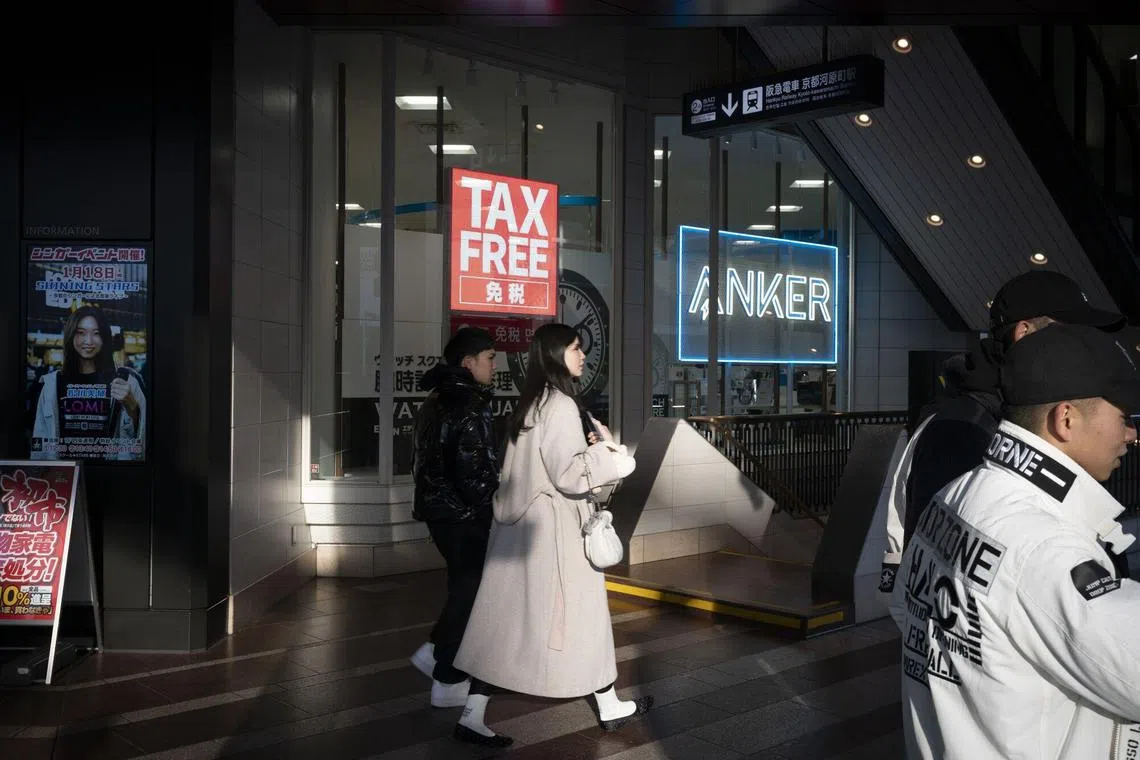Inflation and job scares fuel risk of civil unrest, says Edelman
Sign up now: Get ST's newsletters delivered to your inbox

A survey conducted among more than 33,000 respondents in 28 countries found that over half of the respondents believe that capitalism does more harm than good.
PHOTO: BLOOMBERG
Follow topic:
DAVOS, Switzerland – A global inflation scare and concerns that economic shifts will erode jobs are feeding perceptions that the world is becoming increasingly unfair, threatening civil unrest as a response, according to communications firm Edelman.
The world has entered an “age of grievance”, said Mr Richard Edelman, chief executive of the namesake firm.
He cited a survey conducted from Oct 25 to Nov 16 of over 33,000 respondents in 28 countries that found an unprecedented lack of faith in governments, business leaders and the media.
About two-thirds of respondents said they feel discriminated against, up 10 percentage points in a year. Three-quarters of respondents worry about their pay not keeping up with inflation, while around 60 per cent are concerned about job losses due to international trade conflicts, economic pressures or artificial intelligence.
Only 36 per cent believe that things will be better for the next generation.
In 2024, governments across the world were ousted in elections, reflecting deep-running dissatisfaction with established regimes.
Populists critical of established leaders have emerged as winners – with potentially grave consequences for so-far unquestioned economic models and social rules.
Over half of the survey respondents believe that capitalism does more harm than good, including 55 per cent of 18- to 34-year-olds.
The majority of young adults also consider disinformation, online attacks or violence to persons or property an appropriate way to bring about change.
Survey results show a correlation between trust and economic growth that explains why Saudi Arabia, the United Arab Emirates and India consistently show high levels of institutional trust.
The opposite is true for countries, including Germany, Japan and South Korea, where governments are experiencing economic and political travails.
“The most pressing need is to restore economic optimism,” said Mr Edelman. “Our research tells us that when people see solutions, they’re more hopeful and willing to sacrifice for the greater good. When trust is earned, optimism grows.”
The report comes just ahead of the World Economic Forum’s annual meeting in Davos.
The forum’s risk report, published last week, showed misinformation and disinformation were policymakers’ primary worry on a two-year horizon. BLOOMBERG

